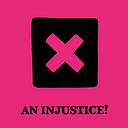Member-only story
POLITICAL GENEALOGY
Michelle Obama’s Jumper Roots: Proving Your Freedom Over and Over Again

Some years ago, when Michelle Obama was a freshly minted First Lady, I spent eight months delving into her roots. One story unearthed by my research was featured on the front page of The New York Times, but there’s much more to be found in the other branches of her family tree — including her Jumper line which was free long before Emancipation.
If you look at the highlighted bit in the document above, you’ll spot Peter and Dolly Jumper, a pair of Michelle Obama’s 3rd great-grandparents. Let your eyes drift all the way to the right, and you’ll see the names of their children. Scrutinize the entire document and you’ll spy something jarring — a column labeled “last owner,” a disturbing, post-Emancipation attestation of slavery. But it didn’t apply to the Jumper family. Where others listed the names of their last enslaver, Peter and Dolly Jumper simply said “free.”
Free before Emancipation
While this certainly made the Jumpers a distinct minority, many don’t know that approximately ten percent of African Americans were free prior to Emancipation. This is an important reality for anyone interested in African American genealogy because those of us living today had quite a few ancestors back in the 1860s. Depending on your age and assuming generations of roughly 20 to 25 years, you might have had approximately 16, 32, 64, 128 or even more direct line forebears at the time (two parents, four grandparents, eight great-grandparents, etc.). And with so many branches in your family tree, there’s a decent chance that at least one of them was free.
The reason this matters is because those ancestors will be easier to research since they weren’t hidden behind the obscurity that slavery inflicted on so many. Free ancestors will appear in census, military, and other records with all the details genealogists hope for — names, dates, and places. Moreover, their paper trail will often be supplemented by regular appearances in local court records. Why? Because they had to prove their freedom — over and over again.
Free Papers
In Virginia, the General Assembly passed an act in 1793 requiring the registration of free Blacks. It was only about a…

